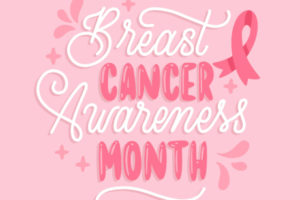The Hormonal Contraception and Breast Cancer Connection: What You Need to Know
When Breast Cancer Awareness Month rolls around, much of the conversation focuses on early detection, risk factors, and treatment options. However, one topic that doesn’t always get the attention it deserves is the relationship between hormonal contraception and breast cancer risk. While hormonal birth control is widely used for family planning, period regulation, and even acne treatment, the potential link to breast cancer remains under-discussed despite its importance for many people.
Hormonal Contraception: What Is It, Exactly?
Hormonal contraceptives are birth control methods that contain synthetic versions of the hormones estrogen and/or progesterone. These hormones prevent pregnancy by regulating the menstrual cycle, stopping ovulation, or thickening cervical mucus to prevent sperm from reaching an egg. Greatest hits include:
-
- Birth control pills (combined or progestin-only)
- Hormonal IUDs
- Birth control implants
- Injectable contraception
- Patches or vaginal rings
While hormonal contraceptives are effective and convenient for many people, their long-term use has raised questions about the potential link to breast cancer.
The Hormonal Contraception and Breast Cancer Risk: What Science Says
Studies on the relationship between hormonal contraception and breast cancer risk have produced mixed results, though some key findings are worth noting. A 2017 study published in the New England Journal of Medicine followed nearly 1.8 million people over an average of 10 years, showing a slightly increased risk of breast cancer among current and recent users of hormonal contraceptives. However, this increase was modest—about one additional case of breast cancer per 7,690 people using hormonal contraception per year.
But why does this happen? Here’s what we know:
- Estrogen Exposure
Many hormonal contraceptives contain estrogen, a hormone known to promote the growth of some types of breast cancer cells. The longer someone is exposed to higher levels of estrogen through birth control, the more their risk may increase. This is particularly important for people who start hormonal contraception at a young age or use it for extended periods. - Progesterone’s Role
Progestin-only methods, such as some IUDs or mini-pills, also seem to have a link to increased risk. Progestin, a synthetic form of progesterone, can stimulate breast cells in ways that may raise the chance of cancer, though the effect is less studied than that of estrogen. - Longer Use, Greater Risk
The risk appears to increase the longer someone uses hormonal contraception, though it returns to normal within five to ten years after stopping. So, those who stop using hormonal birth control at an early age may not experience the same long-term effects as people who use it for decades.
Weighing the Risks: Hormonal Contraception vs. Other Factors
While the potential link between hormonal contraception and breast cancer is important to consider, it’s essential to view it within the broader context of overall health and cancer risk. There are several key points that often get lost in the conversation:
- The risk is still small compared to other risk factors for breast cancer, such as family history, age, lifestyle factors (like smoking and drinking alcohol), and obesity. For most people, the slight increase in breast cancer risk may be outweighed by the significant benefits of using hormonal contraception to prevent unintended pregnancies or regulate health conditions like endometriosis or PCOS.
- Hormonal contraception has protective effects, too. It’s been shown to reduce the risk of ovarian, endometrial, and colorectal cancers. These benefits are often overlooked in discussions about birth control’s risks, making it important to weigh both sides when considering contraceptive options.
Who Should Be Concerned?
While the slight increase in breast cancer risk from hormonal contraception applies to most users, some people may want to discuss alternatives with their healthcare provider, particularly if they:
- Have a family history of breast cancer, especially among close relatives (parent, sibling, aunt)
- Have tested positive for the BRCA1 or BRCA2 genes, which significantly elevate breast cancer risk
- Are at an age where breast cancer risk is already rising (typically over 40)
For these individuals, non-hormonal birth control options like copper IUDs, condoms, or fertility awareness methods may offer effective alternatives without adding to the risk.
Empowering Informed Choices
Despite the data, it’s critical not to induce panic around hormonal contraception use. For most people, the benefits far outweigh the risks, and the increased likelihood of breast cancer is relatively small. However, this is a conversation that deserves more visibility—especially for those who may already be at a higher risk for breast cancer due to family history or genetic predisposition.
Having an open and honest conversation with a healthcare provider is crucial for making informed decisions about contraceptive options. Routine breast screenings, understanding family history, and weighing the pros and cons of different birth control methods are essential steps in reducing breast cancer risk while still addressing reproductive health needs.
Final Thoughts
As Breast Cancer Awareness Month progresses, it’s a good time for everyone to revisit their reproductive health choices, especially when it comes to hormonal contraception. While there is a slight increased risk of breast cancer, this needs to be balanced with the personal benefits of these medications for preventing pregnancy and managing other health conditions. Empowering people with the knowledge to make informed decisions about their bodies—and supporting access to both hormonal and non-hormonal contraceptive options—remains key to proactive breast cancer prevention and overall well-being.

